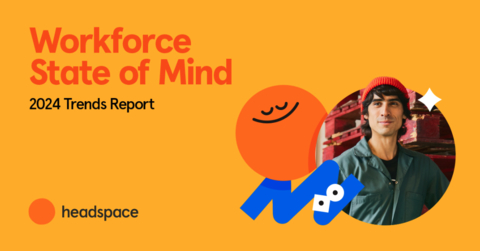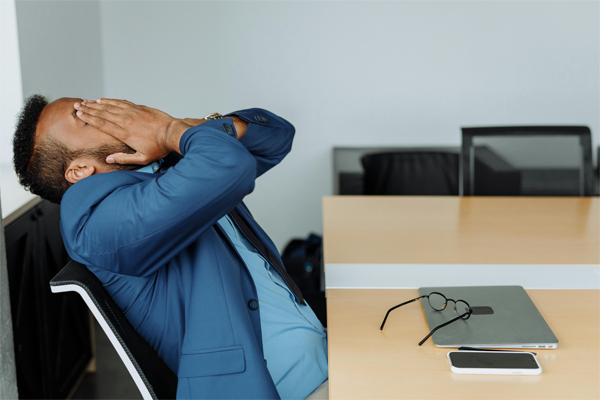A new report from Headspace has exposed how workplace stress is driving divorce, health decline, and substance use.
While work provides a sense of community, greater confidence, and purpose for workers, 71% of employees say it has caused a personal relationship to end, according to the study to mark Stress Awareness Month. Additionally, 77% say work stress has poorly impacted their physical health, and nearly 40% say work has contributed to serious mental health challenges, such as substance use.
The annual Workforce State of Mind report, of more than 2,000 CEOs and workers in the US and the UK on trends impacting their emotional and physical health at work, revealed the unique stressors faced by people leaders with benefits decision-making. Since 2020, the number of employees who reported that their company leaders talk openly about their personal mental health has more than doubled – up from only 35% in 2020 to 89% in 2024. While it’s promising that workplace dialogue about mental health has become more commonplace, the new research points to work stress as a significant contributor to declining employee health and wellbeing in and outside of work.
KEY WORK-RELATED STRESS STATISTICS
According to the report, work stress is driving divorce, parenting pitfalls, and poor physical health. The study showed that:
- 77% of employees said that work stress has negatively impacted their physical health and 75% say it caused them to gain weight.
- 71% of employees found that work stress has caused a personal relationship to end, with Gen X employees being more likely (79%) than any other generation to report that work stress has led to a breakup or divorce.
- Nearly 40% of employees reported that work has negatively impacted their ability to care for their family or children’s mental health.
- 37% of employees shared that work stress has contributed to serious mental health challenges, such as substance use or suicidal ideation.
WORKPLACE MENTAL HEALTH
With managers and HR leaders on the frontlines of the workplace mental health crisis, business success hinges on a deeper investment in mental health and resiliency training as well as cultural transformation, noted the report. While 48% of employees report turning to their managers for mental health support, only one-quarter of HR leaders say that managers are required to take mental health-specific training. Additionally, 43% of employees say their managers have negatively impacted their mental health by lacking an understanding of their life outside of work or by treating team members unequally. In fact, nine in 10 CEOs say they’re concerned about employees’ mental strength to respond to changes, and nearly half (49%) of HR leaders report an increase in mental health leaves of absence.
On a positive note, the study revealed that a sense of community keeps employees engaged and combats the growing loneliness crisis. Despite a shift to remote work for many, employees continue to see the workplace as a source of community and connection: 53% of employees shared that the workplace helped them find a community of people with similar backgrounds or lived experiences. Nearly half (44%) of employees said that their workplace helped them build connections and feel less lonely.
MENTAL HEALTH AT WORK
With 98% of employees reporting that global trends impact their mental health at work, an investment in forming and supporting employee resource groups (ERGs) – which offer a safe space for employees to connect, and an opportunity to foster dialogue where people can share their lived experiences in the workplace – is more important than ever before, noted the study.
“Despite the overwhelmingly negative impact employees experience when work stress seeps into their personal lives, our data shows there’s a clear upside for businesses that prioritise cultural transformation in the workplace and invest in evidence-based, high-quality mental health support for their workers. 97% of the employees we surveyed reported feeling better after using company-provided mental health benefits,” stated Karan Singh, COO and Chief People Officer of Headspace. “With access to compassionate, outcomes-driven care, employers can see and measure the difference in employee wellbeing.”
Now, more than ever, it’s crucial for employers to show employees how valued they are as individuals by offering comprehensive, quality programmes that support their mental wellbeing. “After launching Headspace’s full suite of offerings to our Regions Bank employees, we are already seeing solid results. Most importantly, Headspace is helping to remove some of the stigma that has existed around mental health,” shared Mike Branca, Head of Total Rewards of Regions Bank. “The partnership complements our focus on consistently offering a workplace culture that prioritises not only the needs of our customers but also the wellbeing of our people who are driving the services we deliver every day.”
Click here for more information on the latest Workforce State of Mind report.








































